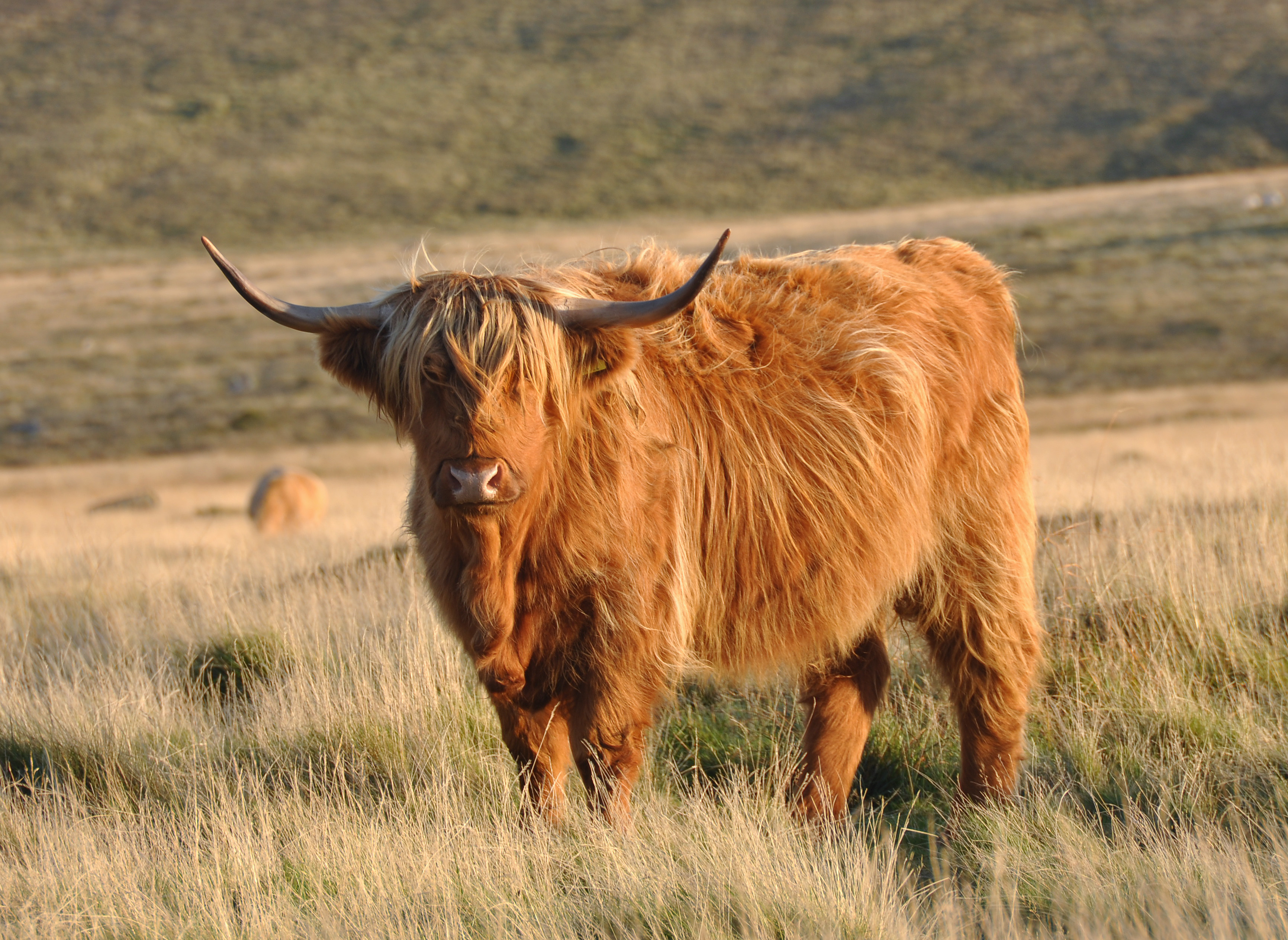Plus it's an opportunity to workshop the way I want to communicate worldbuilding and character building through random tables and other gameable nonsense.
The Nomads
 |
| fuzzy wuzzy was a cow. Nilfanion [CC BY-SA (https://creativecommons.org/licenses/by-sa/3.0)] |
The Bolucht live in small groups called camps, consisting of around ten tents - each with a family of five or six. The shaggy, hardy kyloes are mounts, beasts of burden, and food. An average family maintains a mixed herd of fifteen or more, often with a small collection of goats or sheep. Dogs, though they look more like the wolves that terrify the shepherds of settled peoples, and the large, sword-fanged snow cats are kept for hunting and companionship.
The Bolucht measure wealth in the size of a herd, and the richest boast herds of hundreds of animals or more. Camps spend the seasons moving back and forth across the northern plains as available foraging demands.
Each Bolucht camp is a miniature society to itself. There is no single leader, rather decisions are made collectively based on the wisdom of whoever is most experienced with the problem at hand. An elder might advise on matters of marriages, a hunter on choosing new foraging grounds, and a priest or sorcerer on matters of the spiritual. Beyond the camp, there is the clan, a loose confederation of many camps that is organized by a council of elders and wise ones chosen from among the camps. These elders give guidance on matters relating to the whole clan and dealings with other clans or the world beyond the plains. In turn, the clans meet and confer on business that affects the whole nation. Only in times of dire consequence is authoritative power given to a small group, and then only for the time of need. This unstructured but self-organizing leadership is often confusing to outsiders, who think of crowns and thrones and borders. But the Bolucht know that the harsh land they live in can only be survived through cooperation and respect.
Conflict between the Bolucht is not uncommon, but neither is it wasteful. Cattle raids and inter-clan skirmishes happen over the rights to grazing lands or water sources, but are more ritualized than truly violent. Monsters and predatory outsiders provide more than enough peril, and opportunities for valour, to go around. When roused to true war, a Bolucht horde is a trampling mass of angry bulls, daring lancers, and masterful archery.
The Bolucht are divided into two nations by the Fler river, the Tiger Nomads to the west, and the Wolf Nomads to the east. The Bolucht claim that each was founded by one of the two daughters of the First Cow - Sga and Mor. Each daughter took half of the newly born children of the First Cow and the Sky Father for herself and led them into the plains.
The Tiger Nomads claim the snow cat as their emblem, the Wolf Nomads the large grey wolves that roam the plains and the Burneal Forest. The Tiger Nomads trade with the Caliphate to the south, and with the ships that pass along their coast. The Wolf Nomads have a tense peace with the denizens of the Vesve Forest, and skirmish constantly with the minions of Iuz across the Dulsi River.
Each nation maintains a single permanent 'city' - in reality little more than glorified trading posts where outsiders come to do business. These cities, Yecha in the west and Eru-Tovar in the east, boast fortifications that rival the greatest cities in the southlands - not because the Bolucht value hiding behind walls, but because they realized that whenever outsiders invaded they seemed compelled to lay siege to anything resembling a wall they could find, allowing the Bolucht to gather their strength and fight on open ground. Indeed, one popular feature of the midsummer clan gatherings are competitions to see which clan can most increase the height and depth of a wall section.
Generating a Nomad Background
Decide whether you are of the Tiger or Wolf NomadsYour birth clan was: 1 - Star, 2 - Sun, 3 - Cloud, 4 - Snow, 5 - Rain, 6 - Moon
Your family god/dess was: 1 - Spring, 2 - Storms, 3 - Craft, 4 - Hunt, 5 - Winter, 6 - Trade
While among the Nomads, you were:
1 - A capable hunter. 2 - A daring lancer. 3 - A talented tailor. 4 - A burden. 5 - A creche-keeper. 6 - A goatherd.
You became an adventurer because:
1 - A drought killed half your family’s herd. You left home to reduce their needs.
2 - An outsider
stole a family heirloom and sold it. You have sworn to retrieve it.
3 - You murdered outside of a legal duel and were banished.
4 - You rejected an arranged marriage, defying the will of the elders and your family.
5 - You were captured by cultists of Iuz in a battle that left your family dead. You escaped, but now what?
6 - You were responsible for the loss of a herd, and you fled in shame.
No comments:
Post a Comment